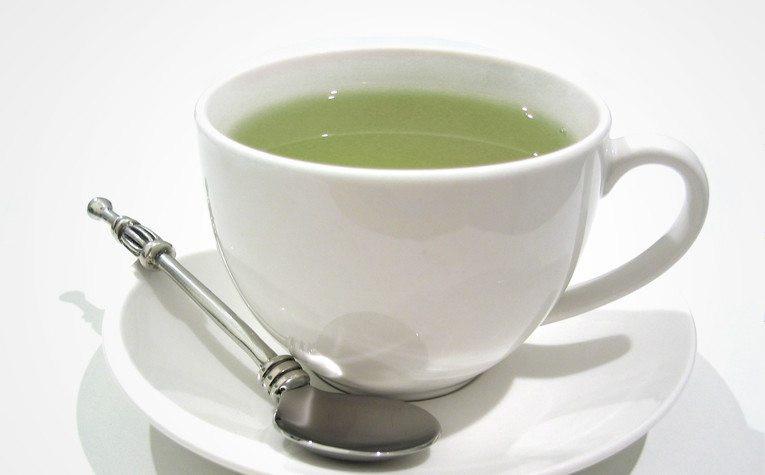Whenever summertime rolls around many people begin to worry about getting their body bikini-ready. Of course, every body is bikini-ready! Whoever wants to don a swimsuit and enjoy the beach should be able to, regardless of what some Daily Mail columnists believe (yes that would be you, Linda Kelsey). For some people though, this focus on appearance can be a great motivational tool to get healthy and to lose some unwanted body weight. The tricky thing with weight loss is that being skinny doesn't always equate to better health and, alas, the more weight you lose the harder it is to lose more weight! This is why the careful use of natural weight loss supplements like green tea can offer real benefits for healthy and sustainable slimming. Factors in Weight-Loss There are so many factors involved in weight management and pretty much everyone now knows that a simple calories-in calories-out model of weight loss doesn't really add up. Instead, if you're looking to achieve and maintain a healthy weight you'll need to take into account:
 What is Green Tea? Green tea (Camellia sinensis) is a natural plant extract that is thermogenic, fat-burning, rich in antioxidants, and which actually helps with appetite control and absorption of calories. Widely used in China and Japan to help people maintain energy and a healthy bodyweight, green tea contains polyphenols called catechins, including the potent flavonoid epigallocatechin-3-gallate (EGCG). How Green Tea Works for Weight-Loss EGCG and its fellow catechins are thought to exert green tea's fat-burning benefits by inhibiting an enzyme called catechol-O-methyltransferase (COMT). This enzyme breaks down norepinephrine, the neurotransmitter that regulates fat metabolism (Shixian et al., 2006). However, a new in vivo study suggests that results from in vitro research may not apply to the human body itself, with alternative explanations possibly needed to explain green tea's fat-burning benefits (Lorenz et al., 2014). Green tea also appears to increase the liver's use of fatty acids, helping to improve blood lipid and cholesterol status and appetite control (Dulloo et al., 1999). More Benefits of Green Tea As green tea contains natural antioxidants it actively helps protect the body from damage when free radicals are produced during exercise and by general metabolism. The catechins in green tea may also reduce the absorption of fat and glucose from food by affecting the enzymes alpha-amylase and alpha-glucosidase as well as pancreatic lipase and the sodium-dependent glucose transporter (Rains et al., 2011). Green Tea and Angiogenesis Green tea even has an anti-angiogenic effect, meaning that it inhibits the growth of new blood vessels. This helps prevent the body from laying down new fat stores as these need new blood vessels to grow, as does cancerous tissue, suggesting an additional anticarcinogenic benefit of green tea (Li et al., 2013). What’s an Effective Green Tea Dosage? Research into the effects of green tea catechins on weight loss have used doses ranging from around 140mg to 1200mg per day with minimal adverse effects. Green tea does, however, contain caffeine and its inhibition of certain enzymes means that it may interact with medications and cause loose, fatty stools. As with any weight loss products it is best to consult a physician prior to use. If the heat of summer has you thinking of heading to the beach but your extra few pounds are making you think twice, consider green tea as a sustainable and effective way of boosting energy and metabolism as part of an overall healthy diet and lifestyle. References Li X, Feng Y, Liu J, Feng X, Zhou K, Tang X. Epigallocatechin-3-gallate inhibits IGF-I-stimulated lung cancer angiogenesis through downregulation of HIF-1a and VEGF expression. J Nutrigenet Nutrigenomics. 2013;6(3):169-78. Shixian Q, VanCrey B, Shi J, Kakuda Y, Jiang Y. Green tea extract thermogenesis-induced weight loss by epigallocatechin gallate inhibition of catechol-O-methyltransferase. J Med Food. 2006 Winter;9(4):451-8. Lorenz M, Paul F, Moobed M, Baumann G, Zimmermann BF, Stangl K, Stangl V. The activity of catechol-O-methyltransferase (COMT) is not impaired by high doses of epigallocatechin-3-gallate (EGCG) in vivo. Eur J Pharmacol. 2014 Jun 24. Rains TM, Agarwal S, Maki KC. Antiobesity effects of green tea catechins: a mechanistic review. J Nutr Biochem. 2011 Jan;22(1):1-7. Dulloo AG, Duret C, Rohrer D, Girardier L, Mensi N, Fathi M, Chantre P, Vandermander J. Efficacy of a green tea extract rich in catechin polyphenols and caffeine in increasing 24-h energy expenditure and fat oxidation in humans. Am J Clin Nutr. 1999 Dec;70(6):1040-5.
What is Green Tea? Green tea (Camellia sinensis) is a natural plant extract that is thermogenic, fat-burning, rich in antioxidants, and which actually helps with appetite control and absorption of calories. Widely used in China and Japan to help people maintain energy and a healthy bodyweight, green tea contains polyphenols called catechins, including the potent flavonoid epigallocatechin-3-gallate (EGCG). How Green Tea Works for Weight-Loss EGCG and its fellow catechins are thought to exert green tea's fat-burning benefits by inhibiting an enzyme called catechol-O-methyltransferase (COMT). This enzyme breaks down norepinephrine, the neurotransmitter that regulates fat metabolism (Shixian et al., 2006). However, a new in vivo study suggests that results from in vitro research may not apply to the human body itself, with alternative explanations possibly needed to explain green tea's fat-burning benefits (Lorenz et al., 2014). Green tea also appears to increase the liver's use of fatty acids, helping to improve blood lipid and cholesterol status and appetite control (Dulloo et al., 1999). More Benefits of Green Tea As green tea contains natural antioxidants it actively helps protect the body from damage when free radicals are produced during exercise and by general metabolism. The catechins in green tea may also reduce the absorption of fat and glucose from food by affecting the enzymes alpha-amylase and alpha-glucosidase as well as pancreatic lipase and the sodium-dependent glucose transporter (Rains et al., 2011). Green Tea and Angiogenesis Green tea even has an anti-angiogenic effect, meaning that it inhibits the growth of new blood vessels. This helps prevent the body from laying down new fat stores as these need new blood vessels to grow, as does cancerous tissue, suggesting an additional anticarcinogenic benefit of green tea (Li et al., 2013). What’s an Effective Green Tea Dosage? Research into the effects of green tea catechins on weight loss have used doses ranging from around 140mg to 1200mg per day with minimal adverse effects. Green tea does, however, contain caffeine and its inhibition of certain enzymes means that it may interact with medications and cause loose, fatty stools. As with any weight loss products it is best to consult a physician prior to use. If the heat of summer has you thinking of heading to the beach but your extra few pounds are making you think twice, consider green tea as a sustainable and effective way of boosting energy and metabolism as part of an overall healthy diet and lifestyle. References Li X, Feng Y, Liu J, Feng X, Zhou K, Tang X. Epigallocatechin-3-gallate inhibits IGF-I-stimulated lung cancer angiogenesis through downregulation of HIF-1a and VEGF expression. J Nutrigenet Nutrigenomics. 2013;6(3):169-78. Shixian Q, VanCrey B, Shi J, Kakuda Y, Jiang Y. Green tea extract thermogenesis-induced weight loss by epigallocatechin gallate inhibition of catechol-O-methyltransferase. J Med Food. 2006 Winter;9(4):451-8. Lorenz M, Paul F, Moobed M, Baumann G, Zimmermann BF, Stangl K, Stangl V. The activity of catechol-O-methyltransferase (COMT) is not impaired by high doses of epigallocatechin-3-gallate (EGCG) in vivo. Eur J Pharmacol. 2014 Jun 24. Rains TM, Agarwal S, Maki KC. Antiobesity effects of green tea catechins: a mechanistic review. J Nutr Biochem. 2011 Jan;22(1):1-7. Dulloo AG, Duret C, Rohrer D, Girardier L, Mensi N, Fathi M, Chantre P, Vandermander J. Efficacy of a green tea extract rich in catechin polyphenols and caffeine in increasing 24-h energy expenditure and fat oxidation in humans. Am J Clin Nutr. 1999 Dec;70(6):1040-5.
- Poor diet and overeating
- Lack of (the right) exercise
- Insulin resistance and blood glucose control
- Inflammation
- Genetics
- Age
- Sex
- Stress and lack of sleep
- Medications and their side effects
- Environmental toxins.
- Increased energy
- Improvements in cardiovascular health
- Better mood and emotional wellbeing
- Enhanced immune function
- Reduced inflammation
- Pain relief.
 What is Green Tea? Green tea (Camellia sinensis) is a natural plant extract that is thermogenic, fat-burning, rich in antioxidants, and which actually helps with appetite control and absorption of calories. Widely used in China and Japan to help people maintain energy and a healthy bodyweight, green tea contains polyphenols called catechins, including the potent flavonoid epigallocatechin-3-gallate (EGCG). How Green Tea Works for Weight-Loss EGCG and its fellow catechins are thought to exert green tea's fat-burning benefits by inhibiting an enzyme called catechol-O-methyltransferase (COMT). This enzyme breaks down norepinephrine, the neurotransmitter that regulates fat metabolism (Shixian et al., 2006). However, a new in vivo study suggests that results from in vitro research may not apply to the human body itself, with alternative explanations possibly needed to explain green tea's fat-burning benefits (Lorenz et al., 2014). Green tea also appears to increase the liver's use of fatty acids, helping to improve blood lipid and cholesterol status and appetite control (Dulloo et al., 1999). More Benefits of Green Tea As green tea contains natural antioxidants it actively helps protect the body from damage when free radicals are produced during exercise and by general metabolism. The catechins in green tea may also reduce the absorption of fat and glucose from food by affecting the enzymes alpha-amylase and alpha-glucosidase as well as pancreatic lipase and the sodium-dependent glucose transporter (Rains et al., 2011). Green Tea and Angiogenesis Green tea even has an anti-angiogenic effect, meaning that it inhibits the growth of new blood vessels. This helps prevent the body from laying down new fat stores as these need new blood vessels to grow, as does cancerous tissue, suggesting an additional anticarcinogenic benefit of green tea (Li et al., 2013). What’s an Effective Green Tea Dosage? Research into the effects of green tea catechins on weight loss have used doses ranging from around 140mg to 1200mg per day with minimal adverse effects. Green tea does, however, contain caffeine and its inhibition of certain enzymes means that it may interact with medications and cause loose, fatty stools. As with any weight loss products it is best to consult a physician prior to use. If the heat of summer has you thinking of heading to the beach but your extra few pounds are making you think twice, consider green tea as a sustainable and effective way of boosting energy and metabolism as part of an overall healthy diet and lifestyle. References Li X, Feng Y, Liu J, Feng X, Zhou K, Tang X. Epigallocatechin-3-gallate inhibits IGF-I-stimulated lung cancer angiogenesis through downregulation of HIF-1a and VEGF expression. J Nutrigenet Nutrigenomics. 2013;6(3):169-78. Shixian Q, VanCrey B, Shi J, Kakuda Y, Jiang Y. Green tea extract thermogenesis-induced weight loss by epigallocatechin gallate inhibition of catechol-O-methyltransferase. J Med Food. 2006 Winter;9(4):451-8. Lorenz M, Paul F, Moobed M, Baumann G, Zimmermann BF, Stangl K, Stangl V. The activity of catechol-O-methyltransferase (COMT) is not impaired by high doses of epigallocatechin-3-gallate (EGCG) in vivo. Eur J Pharmacol. 2014 Jun 24. Rains TM, Agarwal S, Maki KC. Antiobesity effects of green tea catechins: a mechanistic review. J Nutr Biochem. 2011 Jan;22(1):1-7. Dulloo AG, Duret C, Rohrer D, Girardier L, Mensi N, Fathi M, Chantre P, Vandermander J. Efficacy of a green tea extract rich in catechin polyphenols and caffeine in increasing 24-h energy expenditure and fat oxidation in humans. Am J Clin Nutr. 1999 Dec;70(6):1040-5.
What is Green Tea? Green tea (Camellia sinensis) is a natural plant extract that is thermogenic, fat-burning, rich in antioxidants, and which actually helps with appetite control and absorption of calories. Widely used in China and Japan to help people maintain energy and a healthy bodyweight, green tea contains polyphenols called catechins, including the potent flavonoid epigallocatechin-3-gallate (EGCG). How Green Tea Works for Weight-Loss EGCG and its fellow catechins are thought to exert green tea's fat-burning benefits by inhibiting an enzyme called catechol-O-methyltransferase (COMT). This enzyme breaks down norepinephrine, the neurotransmitter that regulates fat metabolism (Shixian et al., 2006). However, a new in vivo study suggests that results from in vitro research may not apply to the human body itself, with alternative explanations possibly needed to explain green tea's fat-burning benefits (Lorenz et al., 2014). Green tea also appears to increase the liver's use of fatty acids, helping to improve blood lipid and cholesterol status and appetite control (Dulloo et al., 1999). More Benefits of Green Tea As green tea contains natural antioxidants it actively helps protect the body from damage when free radicals are produced during exercise and by general metabolism. The catechins in green tea may also reduce the absorption of fat and glucose from food by affecting the enzymes alpha-amylase and alpha-glucosidase as well as pancreatic lipase and the sodium-dependent glucose transporter (Rains et al., 2011). Green Tea and Angiogenesis Green tea even has an anti-angiogenic effect, meaning that it inhibits the growth of new blood vessels. This helps prevent the body from laying down new fat stores as these need new blood vessels to grow, as does cancerous tissue, suggesting an additional anticarcinogenic benefit of green tea (Li et al., 2013). What’s an Effective Green Tea Dosage? Research into the effects of green tea catechins on weight loss have used doses ranging from around 140mg to 1200mg per day with minimal adverse effects. Green tea does, however, contain caffeine and its inhibition of certain enzymes means that it may interact with medications and cause loose, fatty stools. As with any weight loss products it is best to consult a physician prior to use. If the heat of summer has you thinking of heading to the beach but your extra few pounds are making you think twice, consider green tea as a sustainable and effective way of boosting energy and metabolism as part of an overall healthy diet and lifestyle. References Li X, Feng Y, Liu J, Feng X, Zhou K, Tang X. Epigallocatechin-3-gallate inhibits IGF-I-stimulated lung cancer angiogenesis through downregulation of HIF-1a and VEGF expression. J Nutrigenet Nutrigenomics. 2013;6(3):169-78. Shixian Q, VanCrey B, Shi J, Kakuda Y, Jiang Y. Green tea extract thermogenesis-induced weight loss by epigallocatechin gallate inhibition of catechol-O-methyltransferase. J Med Food. 2006 Winter;9(4):451-8. Lorenz M, Paul F, Moobed M, Baumann G, Zimmermann BF, Stangl K, Stangl V. The activity of catechol-O-methyltransferase (COMT) is not impaired by high doses of epigallocatechin-3-gallate (EGCG) in vivo. Eur J Pharmacol. 2014 Jun 24. Rains TM, Agarwal S, Maki KC. Antiobesity effects of green tea catechins: a mechanistic review. J Nutr Biochem. 2011 Jan;22(1):1-7. Dulloo AG, Duret C, Rohrer D, Girardier L, Mensi N, Fathi M, Chantre P, Vandermander J. Efficacy of a green tea extract rich in catechin polyphenols and caffeine in increasing 24-h energy expenditure and fat oxidation in humans. Am J Clin Nutr. 1999 Dec;70(6):1040-5.

